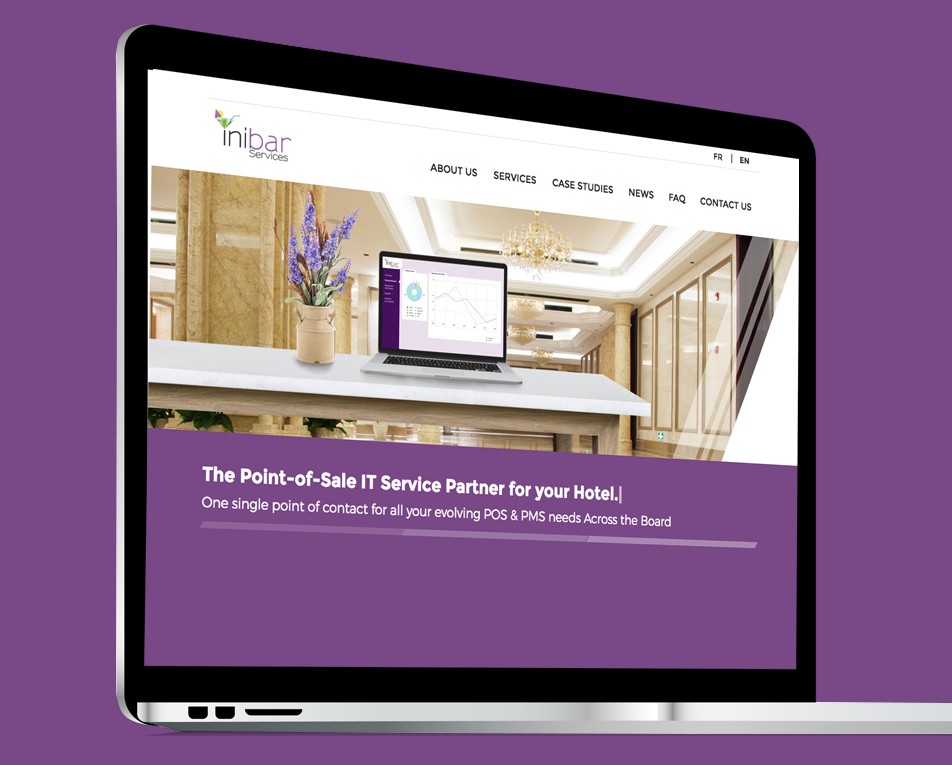We understand our partners’ culture and business model to deliver groundbreaking solutions/
SEE IT LIVE.jpg)
.jpg)

THE CLIENT
METRO supermarkets is a Cyprus-based chain of modern retail grocery stores. Founded in 1982, METRO has expanded its presence in every major city throughout the country. The company was the first of its kind to introduce innovative technology such as electronic inventory control, product ordering systems and electronic cash registers at every check out. Since then, METRO has based its success on its technological and innovative DNA and its focus on unique customer service and a solid relationship, steeped in trust and reciprocity, with their customers, staff, suppliers, and other partners.
CHALLENGE
The challenge for METRO has been to maintain their unique customer focus and, at the same time, adapt to today’s fast-paced technological changes in the retail market. Over the years, Metro has grown in size, number of customers and customer touchpoints. It quickly faced the challenge of finding a solution that would allow them to serve their customers’ needs exceptionally at every touch point, while also gaining a competitive edge in the market.
A company truly driven by its customer-centric philosophy, METRO quickly realized that it would need a complete digital transformation in order to achieve its two-fold business objective. In order to fulfil their vision, many challenges have had to be addressed both technologically (different IT systems and functionalities per digital asset) and organizationally (company culture and process).

SOLUTION
Working closely with METRO management, we embarked on the journey of the design and implementation of their digital transformation. We focused on the use of technology, strategy, marketing and communication towards serving business objectives while assisting the client in positively embracing change.
Consistent to our approach to large-scale transformational projects, we broke it down into a number of smaller steps adapted to the realities of the client. The overall process was initiated with the assessment of the existing situation by conducting extensive interviews with important stakeholders, working together with company management and conducting a thorough analysis of the existing technology.
These initial steps led to the formulation of the transformation strategy and the strategic roadmap. The roadmap consisted of all the elements that we needed to transform, the specific changes to be implemented in each element, the implementation timings and the expected outcomes.
In parallel, we assisted METRO on how to manage change by providing tools and training to the entire organization at every step of the process. The training resulted in a smooth transition from a sole focus on in-store activation, to an expansion of their operations on the digital landscape.
Website
A core element in METRO’s digital transformation was the creation of a fresh, modern and user-friendly website. In order to create a website that appealed to the customers, but also satisfied the business objectives of the company, we gathered the information and the findings from the interview stage and proceeded with their evaluation by our business analysts, content marketers, UI/UX and technology experts. In the next stage, we built the information architecture, the wireframes and a prototype structure that METRO management approved. Finally, once management signed off on the above, we proceeded with developing the front and back end of the new Metro website that would extend the in-store experience to the online world and would help in data collection and personalization.
Social Media Assets
During the creation of the website, we also set up the company’s social media presence. The Metro Facebook, Twitter and Instagram accounts were created according to the new creative guidelines on which we commonly agreed so that METRO can reach and serve its customers at the places where they spend their time online.
Content Marketing Strategy
Another important element of the digital transformation was the introduction of a content marketing strategy. The need to create content and distribute it to the different social media channels was vital if the company wanted to remain relevant in the Cypriot digital landscape. A core objective of creating and implementing a content marketing strategy would be to increase awareness, relevance and customer engagement for Metro across its existing and prospective customers. Based on our previous research of the company, its business objectives, and its consumers’ behaviour, we identified the main pillars of the content strategy and proceeded with the creation of an editorial calendar, content production and distribution to METRO’s digital touch points—their blog, their social media presence or their local digital publishers.
Mobile app
The creation of a mobile application was crucial since we had to ensure that Metro customers are equipped with mobile tools that can enhance their in-store shopping experience. The Metro application uses beacons that transmit and receive contextual (product or offers) and location-based information to deliver useful content and offers to the users, based on their specific preferences, shopping patterns and in-store customer experiences.
Integration of Digital Assets and Personalization
The digital transformation could succeed and yield tangible results only if we integrated all the different new and existing elements (website, loyalty card, social media, and mobile app) and steered them to produce the desired outcomes.
For this reason, we strived to unify the different IT systems and connect the digital assets in order to: a) deliver a consistent and omnichannel experience for each METRO customer and b) identify each METRO customer, collect the needed data securely and legally and design customer journeys across the different touch points (web, social, and in store). This process would help Metro increase their business intelligence and serve each customer better by delivering personalized content and offers to each one of them.
Integration Examples
A specific example of this process is the promotional Christmas campaign “Santa Spin & Win” where we combined the existing loyalty card with a Facebook application and a gamification concept. METRO customers were able to log in to Facebook, spin the wheel in a custom-made Facebook application and earn points and discounts directly placed on their loyalty card. In addition to their Facebook log in, the customers had to fill in data related to their loyalty card so that we could subsequently top up their loyalty card with the discount they would win.
Due to its entertainment element and consumer-friendly implementation, the concept had tremendous success. METRO’s Facebook page saw a huge spike in user engagement and new users were attracted to the store to obtain a loyalty card so that they could play the game. In addition, we managed to collect data from existing customers and associate their digital footprint with their loyalty card. Most importantly, this gave us the ability to map each user’s journey across the different touchpoints using our own customer experience platform/tracking solution.
Another project that helped the company provide a personalized experience to their customers is the “myMETRO” portal, designed specifically for the loyalty cardholders. Each loyalty card owner can log into the “myMETRO” portal and have access to useful tools such as a shopping list functionality, an overview of loyalty points and his/her purchasing trends, as well as personalized content and offers based on his/her consumer preferences.
AI introduction
Since a very important part of the brief was to improve the performance of METRO through breakthrough innovation, we introduced Artificial Intelligence and Machine Learning into the organization.
The underlying technology for facilitating this personalized user experience is a User Experience Platform developed by Base Element. The solution has five pillars: Content Management, Customer Communication, Content Marketing, Data Insights and Machine Learning. The platform leverages Cognitive Services, Machine Learning and Big Data Services from Microsoft Azure in order to process the data collected, provide actionable insights, predict user behaviour and personalize communication.
The use of such an innovative platform improved the customer experience, increased loyalty, minimized customer churn rate and secured positive ROI for the company.
Since a very important part of the brief was to improve the performance of METRO through breakthrough innovation, we introduced Artificial Intelligence and Machine Learning into the organization

RESULTS
With this newly integrated marketing strategy, powered by personalization technology, METRO saw its client numbers grow and has steadily increased sales ever since.
The content we produced was relevant and motivating, and increased the affinity among METRO and its clients. In addition, the focus on excellent customer service transferred to the digital landscape since the content and the personalized offers were very useful and unique for each customer. The blend between the physical (in-store) and the digital (mobile app) environment increased sales and in-store traffic.
Personalized technology helped METRO rationalise and use communication budgets more efficiently, as each euro was carefully directed to where it more effective.
Although we have completed the digital transformation of the company, our cooperation continues up to now as both METRO and the agency are always alert and ready to solve new business challenges with the use of innovative technology.




